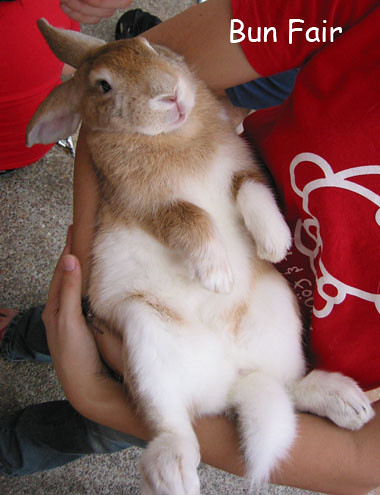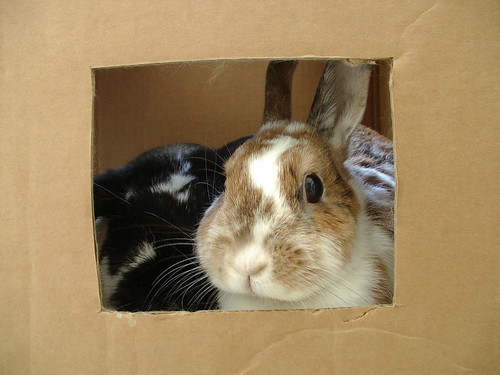Rabbits are cool little animals with great personalities. They can be potty trained and can even live peacefully sharing a house with cats and dogs. These creatures can range in size from dwarf breeds that weigh only a few pounds to Flemish giants that easily weigh over 20 pounds! They have extremely powerful rear legs that help them jump, and all sizes of these animals are at risk of breaking their backs if mishandled. They are ‘hind gut fermenters,’ meaning that they use bacteria in their large intestine (behind the stomach, or ‘gut’) to help digest the fiber they eat. Other examples of hind gut fermenters are horses and rhinoceros! ‘Foregut fermenters’ are animals like cows and giraffe that use bacteria in their stomach to digest the fiber they eat. As gross as this sounds, rabbits consume some of their own feces – special fecal pellets called cecotropes – in order to get all the nutrients they need. You will probably never see them do this, as they usually consume cecotropes at night or early morning. This is an important reason to make sure your rabbit’s cage does not have a wire/mesh bottom that would allow for waste to drop where your rabbit can’t reach.
 |
| Photo by Asaciel (Click to see original.) |
Having a solid handle on a great diet for your rabbit will make it easy keeping a rabbit happy and healthy for a long time! Check out www.rabbit.org for great information on rabbit care, and don’t forget to have your rabbit examined yearly by an exotics trained veterinarian!
Blog by:
 Dr. Michelle Bellville
Dr. Michelle Bellvillewww.lapoflove.com
Click Here for Dr. Michelle's Bio/Contact Information
Dr. Bellville assists families in the Orlando Florida area with In Home Hospice and Euthanasia. She is also available to assist families with 'exotic' species like birds, hamsters, rabbits, etc with all end of like care.


No comments:
Post a Comment
Note: Only a member of this blog may post a comment.